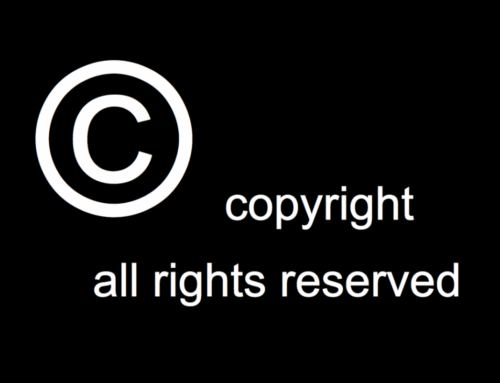Federal regulators are cracking down on the use of “off-channel” communications, such as text messaging, WhatsApp, Signal, and other messaging platforms, to the extent that those messages are not maintained in compliance with legal requirements for data retention.
What should you, as an employer, do about this crackdown? First, your business needs a policy requiring all electronic workplace communications to take place on either your organization’s email accounts or approved messaging services. Ensure that all of your employees understand this policy and have them agree in writing to comply with it.
You should also disable auto-delete functions unless they’ve been customized to auto-delete in accordance with all applicable laws and company policies. If you allow auto-deletion, you’ll also need to have (and follow) an appropriate policy for turning off those auto-deletions when necessary.
For example, if your business is aware of pending or reasonably anticipated litigation, it is required to implement a “litigation hold” suspending normal data retention policies to ensure that all relevant data is available during the discovery process.
Proposed New Enforcement Guidance on Harassment (Federal Law)
Last month, the Equal Employment Opportunity Commission (EEOC) published new proposed enforcement guidance on harassment in the workplace. While this guidance is merely proposed, it’s a good idea for employers to begin reviewing their policies for areas that will likely need updating.
Among other things, the proposed guidance updates the definition of sex-based harassment to reflect the 2020 Supreme Court decision relating to the expression of gender identity and the 2023 enactment of the federal Pregnant Workers Fairness Act.
Under the proposed new definition, sex-based harassment would include harassment based on sexual orientation, gender identity, pregnancy, childbirth, and lactation.
The EEOC’s proposed guidance also makes it clear that employers can be liable for employee conduct when it occurs in a work-related context outside of the regular place of work or in a non-work-related context when the conduct impacts the work environment.
No Retaliation for Refusing Unsafe Work (Oregon Law)
SB 907 prohibits employers from retaliating or discriminating against employees or prospective employees who, with no reasonable alternative and in good faith, refuse to do work that exposes them to the risk of serious injury or death arising from hazardous workplace conditions.
This law becomes effective January 1, 2024.
Employment Decisions Based on Cannabis Testing (Washington and California Laws)
New laws in California and Washington that affect an employer’s ability to discriminate based on drug tests positive for cannabis use take effect on January 1, 2024.
Washington employers will be prohibited from discriminating in initial hiring decisions based on job applicants’ lawful, off-the-job, and away-from-the-workplace use of cannabis or test results indicating the presence of nonpsychoactive cannabis.
California’s law is broader, protecting current employees as well as applicants.
The most commonly used drug tests (urine tests) show only that the person has used cannabis at some time in the past several weeks, meaning that they don’t show whether the person has recently used cannabis, much less whether the person is impaired.
In addition, because some cannabidiol (CBD) products have low levels of tetrahydrocannabinol (THC), which is the psychoactive compound in cannabis, even those using CBD can test positive.
CBD products are often available over the counter at ordinary stores for purchase by those of any age, so it would not occur to most people that their use might cause them to fail a drug test.
In both states, employers may base initial hiring decisions on scientifically valid drug screening conducted through methods that do not screen for nonpsychoactive cannabis metabolites, though there are currently no drug tests that can distinguish between psychoactive metabolites (those that create a “high”) and nonpsychoactive metabolites.
These laws do not preempt state or federal laws requiring testing for controlled substances in certain positions and do not apply to applicants seeking (or, in California, employees in) positions requiring a federal background investigation or security clearance, or certain safety-sensitive positions.
Paid Sick Leave (California Law)
Earlier this month, Governor Newsom signed SB 616 into law, amending the Healthy Workplaces, Healthy Families Act of 2014.
Among other things, the amended law increases the annual accrual of paid sick leave from 24 hours to 40 hours, with an accrual cap of 80 hours, and increases the permitted use limitation from 24 hours per year to 40 hours per year.
This new law goes into effect on January 1, 2024.
Workplace Violence Prevention Plans (California)
Late last month, Governor Newsom signed SB 553 into law. This law, which takes effect July 1, 2024, requires nearly all California employers to establish, implement, and maintain written tailored workplace violence prevention plans.
Such a plan must be specifically tailored to each work area and identify the individuals responsible for implementing the plan. Employers must involve employees in the development and implementation of the plan and require all employees to comply with the plan.
The plan must cover, among other things, systems for identifying, evaluating, and correcting workplace hazards; procedures for responding to actual or potential workplace violence emergencies; investigation protocols; and a system for ensuring that employees comply with safe and healthy work practices.
Intellectual Property Rights (New York Law)
Effective immediately, New York has banned employers from requiring employees to assign inventions or other intellectual property that they develop using their own property on their own time. The new law applies to both future agreements and pre-existing agreements and makes any such provision unenforceable. There are, however, two exceptions.
An employer may still require an employee to assign the employee’s invention or other intellectual property – even when the employee develops the invention or other intellectual property entirely on the employee’s own time and without using an employer’s equipment, supplies, facilities, or trade secret information – if the invention relates “at the time of conception or reduction to practice of the invention to the employer’s business, or actual or demonstrably anticipated research or development of the employer.”
Similarly, an employer may require employees to assign the employee’s rights when the invention or other intellectual property “results from any work performed by the employee for the employer.”
*****
Whether you are an employee or an employer, please feel free to contact us if you have any questions about the above or any other employment-law issues.
For more information about employment law, see Employment Law (in Plain English)®, co-authored by members of this law firm.
The book is available through Skyhorse Publishing, Amazon, Barnes & Noble, Powell’s Books, and Bookshop (an online bookstore that allows you to support your favorite independently owned bookstore).
Photo by Christina Rumpf on Unsplash






